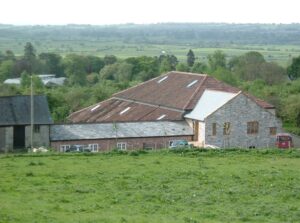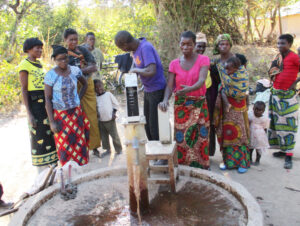
When it comes to sustainability, our members prove that the sector is an exemplar when it comes to the environment. From buildings and trees to the massively important issue of reducing single use plastics, WHA members have it covered.
Green building and land management
An example is the environmentally friendly building and land project by Glastonbury Spring Water. Sales Director, David Lem, said: “Glastonbury Spring Water was proud to be a finalist at the Zenith Global Water Drinks Awards 2022 within the Best CSR Initiative category. This was for our work at Park Corner Farm which the judges described as a ‘great internal sustainability project’. The project also gained the company a Higher-Level Stewardship Scheme designation from Natural England.
The environment and climate change heavily influenced the way the company carried out its design when building new premises at the site, developing a rundown council farm into an award-winning, state-of-the-art production facility, with every aspect of the design encompassing recyclable or renewable materials wherever possible.
Pictured: Glastonbury Spring Water’s Park Corner Farm site, before and after the construction project
Bricks in the build were reclaimed from the previous farm buildings. Sheep’s wool was used as insulation for the roof. Under-floor heating was installed with a ground source heat pump to warm the offices and production areas. Solar panels were introduced to heat hot water in the production areas and a reed-bed sewerage waste system completed the installation. All packaging is recycled locally. The water runs directly into the bottling plant from the source without the need for transport. They farm with no nitrates being used so that the land is clean of any unwanted chemicals.
Proving that sustainability can be good for business, David Lem adds: “We are seeing exceptional growth having rebranded with a fresh new logo on our glass products.”
Winning the cup
Another great example of excellence comes from WHA member Thirsty Work. Fittingly, the initiative coincided with the COP27 conference. The company decided to move towards plastic free cups and that programme is about to come to fruition. Matt Stimpson, Director of Thirsty Work, said: “This move means we are taking another step in the right direction and no plastic will be used in our paper cups or the outer and inner packaging giving our customers a truly 100% recyclable product.” The move means there will be no plastic used in Thirsty Work’s cups – not even paper cups with plastic linings.
Glastonbury Spring Water also sells biodegradable cups to help customers improve their environmental standing.
Branching out
The final example shared by the WHA is that of the WCD Group. The company has initiated an impressive sustainability project via Ecologi which involves planting trees over a long period of time. Sarah Frampton, Business Manager of the WCD Group, said: “We plant a tree for every hydration point we sell. We also counterbalance our employees’ carbon footprint and plant additional trees to offset future emissions every month.”
The charity logs the success via a live link giving real time reporting on the number of trees planted. At the time of writing this was over 19,000 trees, exceeding the initial ambition to plant 15,000 trees by the end of 2022. For updates on this project, follow the company’s LinkedIn page.


